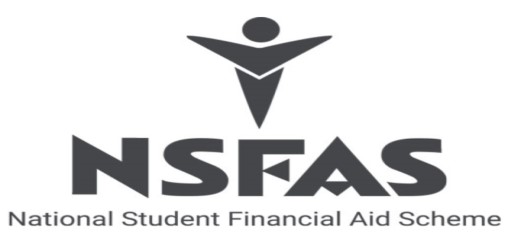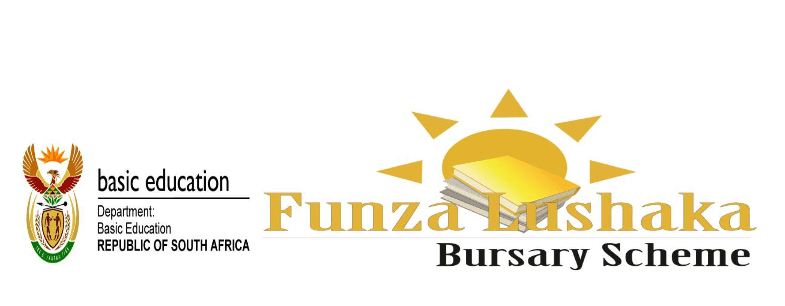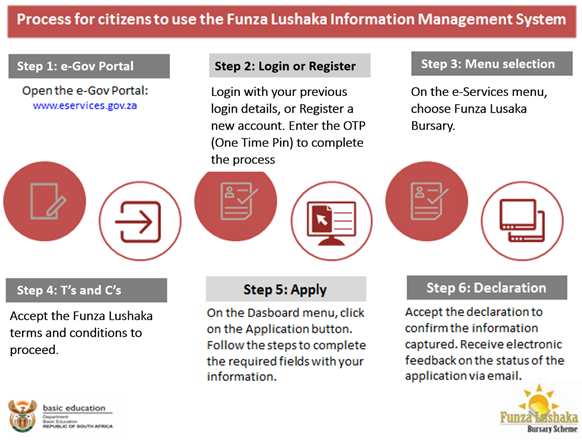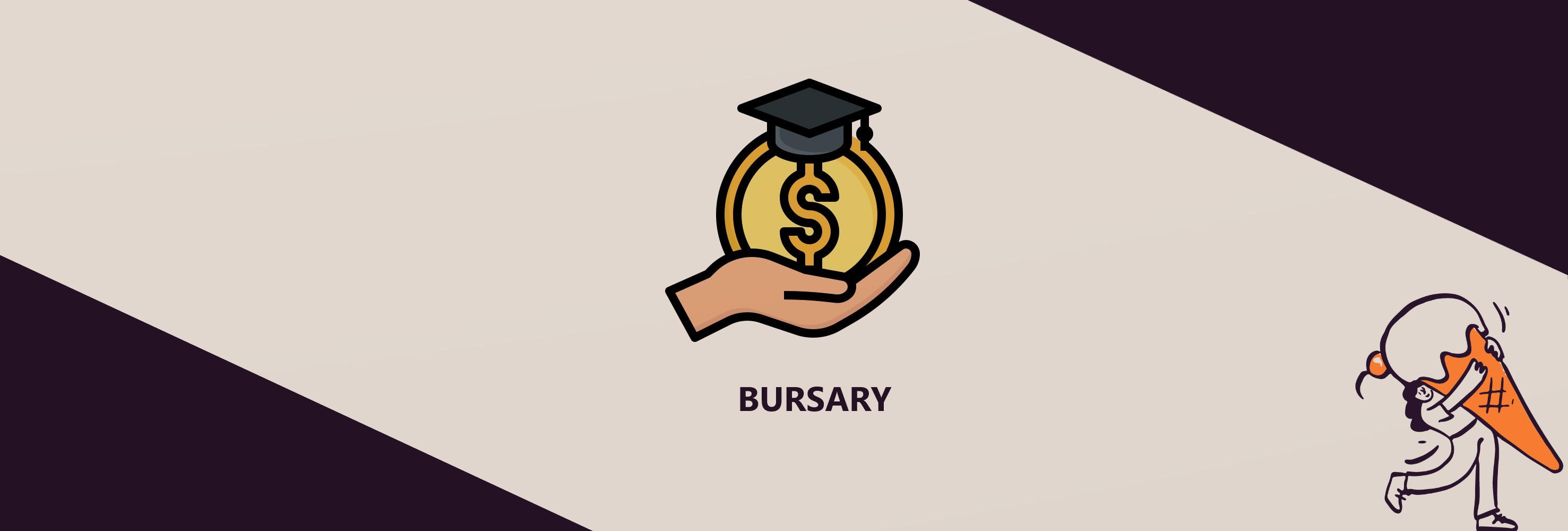NSFAS

The National Student Financial Aid Scheme (NSFAS) is a South African government student financial aid scheme that helps undergraduate students pay for the cost of their tertiary education after they graduate from high school. The Department of Higher Education and Training funds it. The program also administers bursaries such as the Funza Lushaka Teacher Bursary (for students pursuing a teaching qualification), the DHET Disability Bursary, and other bursaries administered by Sector Education and Training Authorities (SETAs)
REQUIREMENTS FOR NSFAS FUNDING:
- You must be a citizen of South Africa.
- You must be pursuing an undergraduate degree in 2025, or you must plan to (postgraduate courses will not be funded, except for postgraduate students who received funding in 2020)
- You need to be enrolled in or planning to enroll in a public tertiary institution in South Africa (University or TVET College)
- You MUST NOT have earned any prior credentials.
- You must have a combined annual household income of less than R350 000.
NSFAS Frequently Asked Questions
This simply means your application has been loaded onto the NSFAS system successfully.
We have received the application, it's been captured but it has not been evaluated.
The process by which NSFAS determines whether or not an applicant is eligible to receive financial aid, or whether a student is eligible to continue receiving financial aid.
NSFAS have not yet checked whether you qualify academically.
Applicant's application for funding has been approved, however to access this funding they need to be admitted and registered to a public university or TVET college.
we require further supporting documents either due to documentation not being clear, valid or not supplied.
NSFAS ACCEPTS WHAT INSTITUTIONS?
Students who will be enrolled in one of the following 50 TVET Colleges or any of the following 25 public universities in 2024/2025, may apply:
Universities:
- University of Cape Town - Cape Town
- University of Pretoria - Pretoria
- University of the Witwatersrand - Johannesburg
- Universiteit Stellenbosch - Stellenbosch
- University of Johannesburg - Johannesburg
- North-West University - Potchefstroom
- University of KwaZulu-Natal - Durban
- University of South Africa - Johannesburg
- University of the Western Cape - Bellville
- Rhodes University - Grahamstown
- University of the Free State - Bloemfontein
- Nelson Mandela University - Port Elizabeth
- Cape Peninsula University of Technology - Cape Town
- Durban University of Technology - Durban
- Tshwane University of Technology - Pretoria
- Central University of Technology - Bloemfontein
- University of Limpopo - Mankweng
- Vaal University of Technology - Vanderbijlpark
- Sefako Makgatho Health Sciences University - Pretoria
- Mangosuthu University of Technology - Durban
- University of Mpumalanga - Nelspruit
- Sol Plaatje University - Kimberley
- Walter Sisulu University - Eastern Cape
- University of Zululand - Kwadlangezwa
- University of Fort Hare - Alice
TVET Colleges:
Western-Cape
- Boland TVET College
- College of Cape Town for TVET
- False Bay TVET College
- Northlink TVET College
- South Cape TVET College
- West Coast TVET College
Eastern-Cape
- Buffalo City TVET College
- Eastcape Midlands TVET College
- Ikhala TVET College
- Ingwe TVET College
- Port Elizabeth TVET College
- Lovedale TVET College
- King Sabata Dalindyebo TVET College
- King Hintsa TVET College
Limpopo
- Capricorn TVET College
- Sekhukhune TVET College
- Waterberg TVET College
- Vhembe TVET College
- Mopani South TVET College
- Letaba TVET College
- Lephalale TVET College
Gauteng
- Central Johannesburg TVET College
- Ekurhuleni East TVET College
- Ekurhuleni West TVET College
- Sedibeng TVET College
- Southwest Gauteng TVET College
- Western College for TVET
- Tshwane South TVET College
- Tshwane North TVET College
KwaZulu-Natal
- Coastal TVET College
- Elangeni TVET College
- Esayidi TVET College
- Majuba TVET College
- Mnambithi TVET College
- Mthashana TVET College
- Umgungundlovu TVET College
- Umfolozi TVET College
- Thekwini TVET College
Mpumalanga
- Ehlanzeni TVET College
- Gert Sibande TVET College
- Nkangala TVET College
Free-State
- Flavius Mareka TVET College
- Goldfields TVET College
- Motheo TVET College
- Maluti TVET College
Northern-Cape
- Northern Cape Urban TVET College
- Northern Cape Rural TVET College
North-West
- Vuselela TVET College
- Taletso TVET College
- Orbit TVET College
Despite the fact that NSFAS is a fantastic idea, not all students will be eligible for the program. View other bursaries that are currently open for applications if you're a student looking for alternate sources of income for your postsecondary study here
Applications: OPEN
Click here to Apply
Contact Details
Contact: 080 006 7327
Email: info@nsfas.org.za
The Funza Lushaka Bursary

REQUIREMENTS FOR ELIGIBILITY FOR THE FUNZA LUSHAKA BURSARY
Before applying, candidates must meet the minimal admission requirements listed below (Please be aware that your application will not be accepted if you do not meet all of the conditions):
The following requirements must be met by all applicants:
- You must be a resident of South Africa.
- A legitimate South African ID number is required.
- If you're applying for the first time, you must be 30 years of age or younger.
- At least two of the priority subject areas must be your areas of concentration for your BEd degree or PGCE program (extended programmes are not covered)
- You must have received acceptance to one of South Africa's accredited tertiary institutions.
- You need to have a good academic history.
- You must be open to teaching at any institution chosen by the provincial department of education (PED)
- NOT working for a higher education institution is a must (or a spouse, dependent or child of a Higher Education Institution employee)
- A career in teaching requires dedication and commitment, as well as an interest in dealing with young people, enthusiasm for the subject matter, and the ability to rise to adversities with honor.
- You CANNOT hold any additional teaching credentials.
- You must not have any criminal history.
- You must not be under investigation for wrongdoing or be out of a job.
Additionally, new university students must fulfill the following requirements:
- A Matric exemption, endorsement, or entrance with a bachelor's degree is required.
- For the two courses in which you want to specialize as a teacher, you must have received a minimum grade of level 4 in matriculation.
- Students who plan to specialize in Foundation Phase must have received at least a level 2 in mathematics or a level 4 in mathematical literacy in their matriculation AND at least a level 4 in their native language.
- Students who plan to specialize in the intermediate phase must have received at least a level 2 in mathematics or a level 4 in mathematical literacy in their matriculation AND at least a level 4 in their native language.
- If you plan to teach technology topics (including CAT) and you didn't pass them in high school, you must have at least a level 4 in mathematics or technical mathematics.
The following prerequisites must also be met by new university students:
- You must have completed your last tertiary year with a perfect academic record.
- For all subjects taken in your last year of tertiary education, you must have attained a minimum overall average of 55%.
- In your final year of tertiary study, you must have received a minimum overall average of 66.5 % in topics relating to your teaching area of specialization.
The following requirements must also be met by new students enrolling in PGCE programs:
- You must have completed your last tertiary year with a perfect academic record.
- To be admitted to the PGCE program, you must have earned a qualification.
- The PGCE for Senior Phase and Further Education and Training Teaching (SPFET) must be your goal (Grade 7 to Grade 12)
- You must have 2 priority subjects with 1 module successfully completed at third year level, and 1 module successfully completed at second year level
- You must have sufficient modules in the priority subjects in order to qualify to teach it as a subject at school
Application procedures for the Funza Lushaka Bursary are as follows:
- Visit www.eservices.gov.za to access the e-Gov portal.
- Register by entering your personal details on Website.
- Use the login name and password you created when registering to access the system.
- Type the OTP that was received on the chosen channel.
- Acknowledging the terms and conditions.
- The 2025 application button can be found on the dashboard menu.
- Complete the instructions to enter your information in the necessary field.
- Accept the declaration to verify the data collected.

Applications: OPEN
Application dates: 02 November - 21 January
Click here to Apply
Contact Details
Contact: 012 357 3000
Nursing Bursaries for 2025

A career in the medical and health industry is nursing. In order to help people achieve, maintain, and recover from ideal health conditions, nursing largely focuses on providing care for individuals, families, communities, and other groups of people.
While doctors perform most operations, diagnose illnesses, and practice on patients, nurses also make sure that patients' needs are addressed while they are being treated in hospitals and clinics. As they assist families, people, and communities in comprehending the possible physical, mental, emotional, and cultural experiences they may have during both their health and sicknesses, nurses are crucial to the globe. Many people would lack the critical support they require when dealing with an illness or sickness without nurses.
Any of the following credentials, in addition to a degree or diploma in nursing, is required to become a nurse: a 4-year bachelor's degree in nursing; a 3-year diploma; a 1-year higher certificate in auxiliary nursing; or a 1-year postgraduate Advanced Diploma in nursing.
